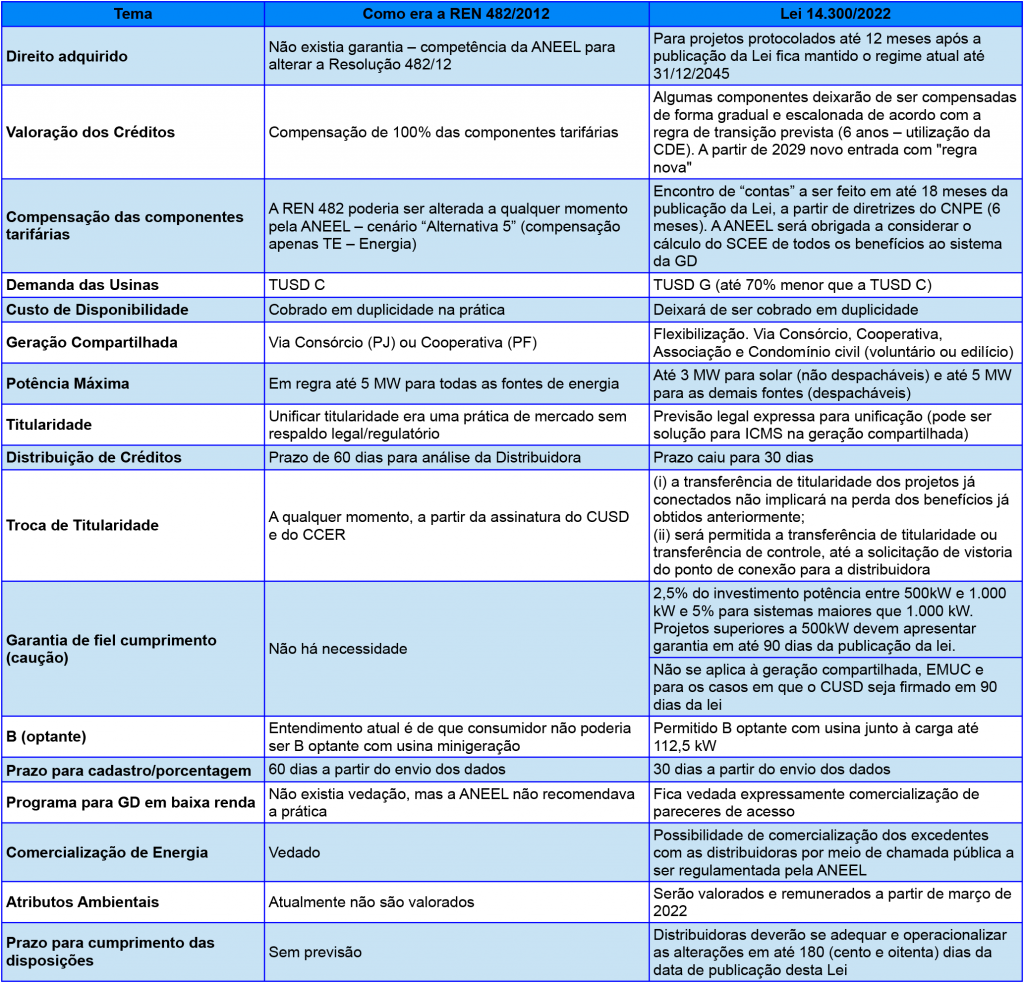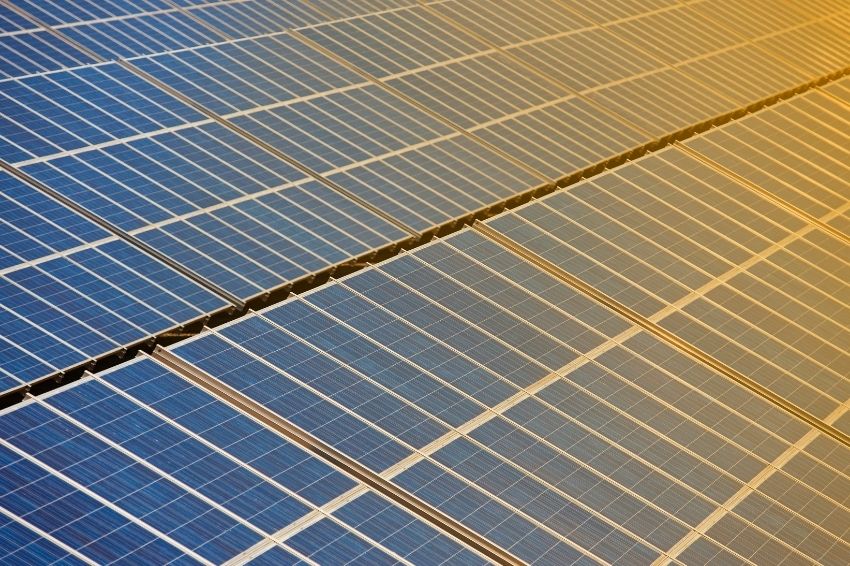A Law 14,300/2022, which creates the Legal Framework for DG (distributed generation) in Brazil, was published on January 7th in the DOU (Official Gazette of the Union).
Despite having come into force on this date, the legislation provides for a transition period for projects requested within 12 months from the publication of the Law.
In other words, all projects in GD, already installed or whose access request occurs until January 7, 2023, will be valid under the current compensation rules provided for in Normative Resolution No. 482/2012 until December 31, 2045.
Starting this Wednesday (6), therefore, consumers will have another six months to structure projects according to the current rules of REN 482. Given this scenario, experts consulted by Solar Channel reinforced the importance of making photovoltaic projects viable in this transition window.
“The current regime is more beneficial, it compensates for all components of the energy bill”, he said Pedro Dante, partner in the energy and infrastructure area of Lefosse Lawyers.
“It is still too early to verify the impacts of changes to distributed generation projects. But, in fact, the interesting thing is to be able to request access by January 7th of next year”, he reported.
The electrical sector specialist Bernardo Marangon, partner of Exact Energy, commented that the market is quite heated and, consequently, many development companies are seeking to guarantee access.
“There are still new entrants wanting to invest in the sector, but time to guarantee the current rule is running out, as the deadline ends in six months. However, the entrepreneur has 12 months to put the project into operation”, he reinforced.
In this sense, he believes that next year the segment will still be booming. “I'm a little concerned about how the access opinion with the distributors will be handled. There is a risk of losing it due to an error in the process and delaying the 12 months through no fault of the developer. So, I think there will be a lot of judicialization due to this”, he concluded.
Comparison between REN 482 and Law 14,300
Below is a summary and comparison showing what REN 482/2021 is like and what Law 14,300/2022 deals with.

The Regulatory Framework
Before the text of the GD Legal Framework was approved, it came a long way. Let's remember:
ANEEL (National Electric Energy Agency) published, on April 17, 2012, REN 482, which created clearer rules and facilitated access to distributed generation.
10 years of GD in Brazil: behind the scenes of Resolution 482
In 2018, the regulatory agency began the process of reviewing 482, with the theme changing the rules in the Electric Energy Compensation System, which became popularly known as “sun taxation” – culminating in a large popular mobilization that reached the president of the Republic and National Congress.
Consequently, PL 5829 was created in 2019 – whose objective was to create the GD Legal Framework. After several meetings with sector authorities, which lasted for around two years, the project was approved in the Chamber of Deputies, unanimously, on December 16th.
Three weeks later, on January 6, 2022, the President Jair Bolsonaro (PL) sanctioned, with vetoes, PL 5829. The document was published the following morning, being registered as Law nº 14,300.
Current situation
The energy compensation rules, after transition period imposed by law, will depend on the valuation to be established by ANEEL based on the costs and benefits of DG, respecting the guidelines of the CNPE (National Energy Policy Council).
To create such guidelines, the CNPE must listen to society, associations and representative entities, companies and agents in the electricity sector. And the MME (Ministry of Mines and Energy) chose to open a public consultation.
On June 23rd, the Authority opened the Public Consultation No. 129/2022 which, initially, would receive suggestions until July 3rd. However, the MME extended until July 15th the deadline for collecting contributions – a postponement that met a request from several associations and entities in the segment.
After the CNPE defines the guidelines, the ANEEL will have up to another 12 months to establish calculations for the valuation of benefits and the new rules that will apply from 2029, when the transition period ends.

















